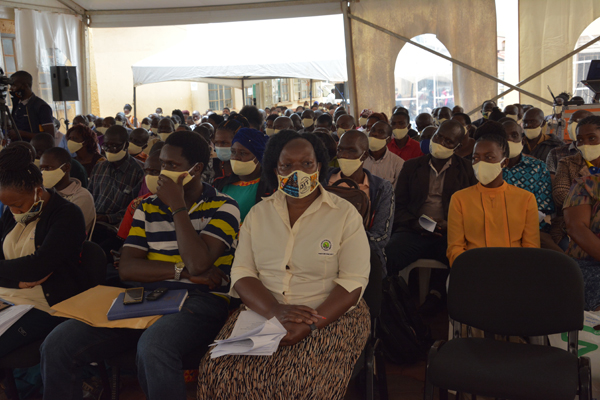8,000 students start technical exams

Exam assessors being brifed in Kampala ahead of today's level one module technical examinations. PHOTO/ SHABIBAH NAKIRIGYA
More than 8,000 students start their level one module technical examinations today.
Speaking to journalists in Kampala yesterday, the head of the Directorate of Industrial Training (DIT), Mr Patrick Byakatonda, said the exercise will last two days, and they have deployed 747 assessors across the country.
“We have been conducting major assessments in March, April, and May, and last time we assessed 42,000 students. This year we are having more than 50,000 students, which shows an increase in the number of students taking on vocational skills,” he said.
Mr Byakatonda explained that previously, the exercise was taking one day but due to Covid-19 guidelines, they have decided to spread it across two days.
“We have used electronic registration because of the pandemic and this has helped us to save time because institutions did not have to come to the main office to submit their registration forms; everything was done online,” he said.
Dr Micheal Okumu, the deputy director-in-charge of assessment and certification, said this year is unique because they have secondary schools candidates.
“The exercise was supposed to take place in October and November but due to Covid-19 it was pushed to this year,” he said.
New identification system
Dr Okumu also revealed that the system has shifted from using the candidate register to the album to identify the persons sitting the particular examination.
“We have come up with the candidate’s album which has a photo, centre name, occupation module, unique number of the candidate, and the name of the candidate and when the assessment is supposed to be done,” he said.
Dr Okumu added that the candidate’s album helps them to avoid impersonators.
“The activity is going to be monitored in the 12 coordinating regions across the country and is going to be verified by verifiers who are already deployed,” he said.
The exercise will cover 40 occupations, which include hairdressing, motor vehicle mechanics, domestic electronics, building, welding, fish farming, plumbing and tailoring.




